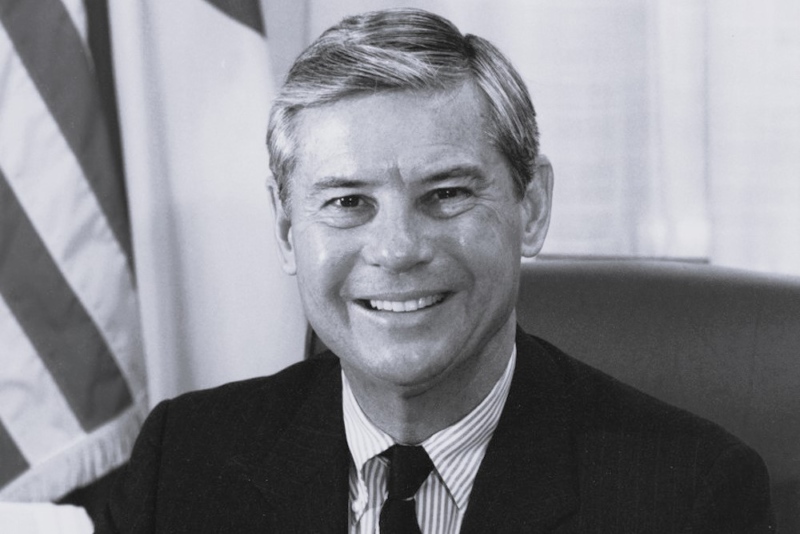In Memoriam: Bob Graham
 United States Senate portrait
United States Senate portrait
The Inter-American Dialogue mourns the loss of Bob Graham, who passed away on April 16, 2024, at the age of 87. Bob Graham was governor of Florida from 1979 to 1987 and served 18 years in the US Senate as a representative of the state. Graham began his career in public service in 1966, when he was elected to the Florida House of Representatives. He served two terms in the House before running for the state's Senate and eventually governor.
“We mourn the loss of Inter-American Dialogue member, Bob Graham, former governor, and United States senator of Florida. His commitment to Latin America and the Caribbean was a constant, as was his ability to reach across the aisle.” said Dialogue president and CEO Rebecca Bill Chavez.
IN MEMORIAM LETTER BY MICHAEL SHIFTER:
Unfortunately, but not surprisingly, in all of the well-deserved, effusive tributes to Bob Graham, who died at 87 on April 16, the former Florida governor and senator’s connection and commitment to Latin America is notably absent. To be sure, Graham had wide-ranging interests and formidable accomplishments on the domestic front, as well as broader global policy concerns.
Yet, over the past four decades, it is hard to think of other US lawmakers who had such a keen and sustained concern for building greater trust and cooperation in inter-American relations. An Inter-American Dialogue member since 2001, he was an active participant in multiple activities in Congress, including regular dinners on varied policy topics on the Hill, but also in the region. In the mid-1990s, he led a project --which took him to Colombia, Bolivia and Brazil -- aimed at deepening exchange and collaboration between the US lawmakers and their Latin American counterparts.
In 1999 Graham served as co-chair, along with General Brent Scowcroft, of a Dialogue – Council on Foreign Relations task force on Plan Colombia. During the course of eight months, I worked closely with both Graham and Scowcroft that led to a final report. While Scowcroft tended to probe more strategic, big picture questions, Graham was well-versed in all of the details -- about the complex situation in Colombia as well as the contents of the anti-drug security package. Occasionally, while reviewing a draft of our Colombia report, he would call in the evening to press me why I used a particular word or phrase. Nothing got by him. He was clearly immersed, engaged, and intent on getting it right.
I came away from that experience enormously impressed by Graham’s intelligence, curiosity, moderation, integrity and utter decency. There was no posturing, no personal agendas. He cast a wide net and sought input and advice from task force members as well as a highly diverse advisory group of influential Colombians. His main concern was to assist Colombia move towards peace, and to create the foundation for more constructive US-Colombia ties.
Just over a year after Plan Colombia was approved by the US Congress, 9/11 happened and everything changed in US global policy. Graham became a tough critic of President Bush’s war on terror. From his chair of the Intelligence Committee, he read the National Intelligence Estimate on Iraq in 2002, looking for evidence of weapons of mass destruction. As he said to me, “There’s nothing there. Nothing.” Graham voted against authorizing Bush’s invasion of Iraq, which said a lot about his character.
Years later, in the 2010s, Graham called me quite frequently. He wanted to know how Colombia was doing and also asked if lessons of Plan Colombia could be applied to Central America and the Caribbean. He was worried and wanted to help. He was always thinking, and always caring.



















